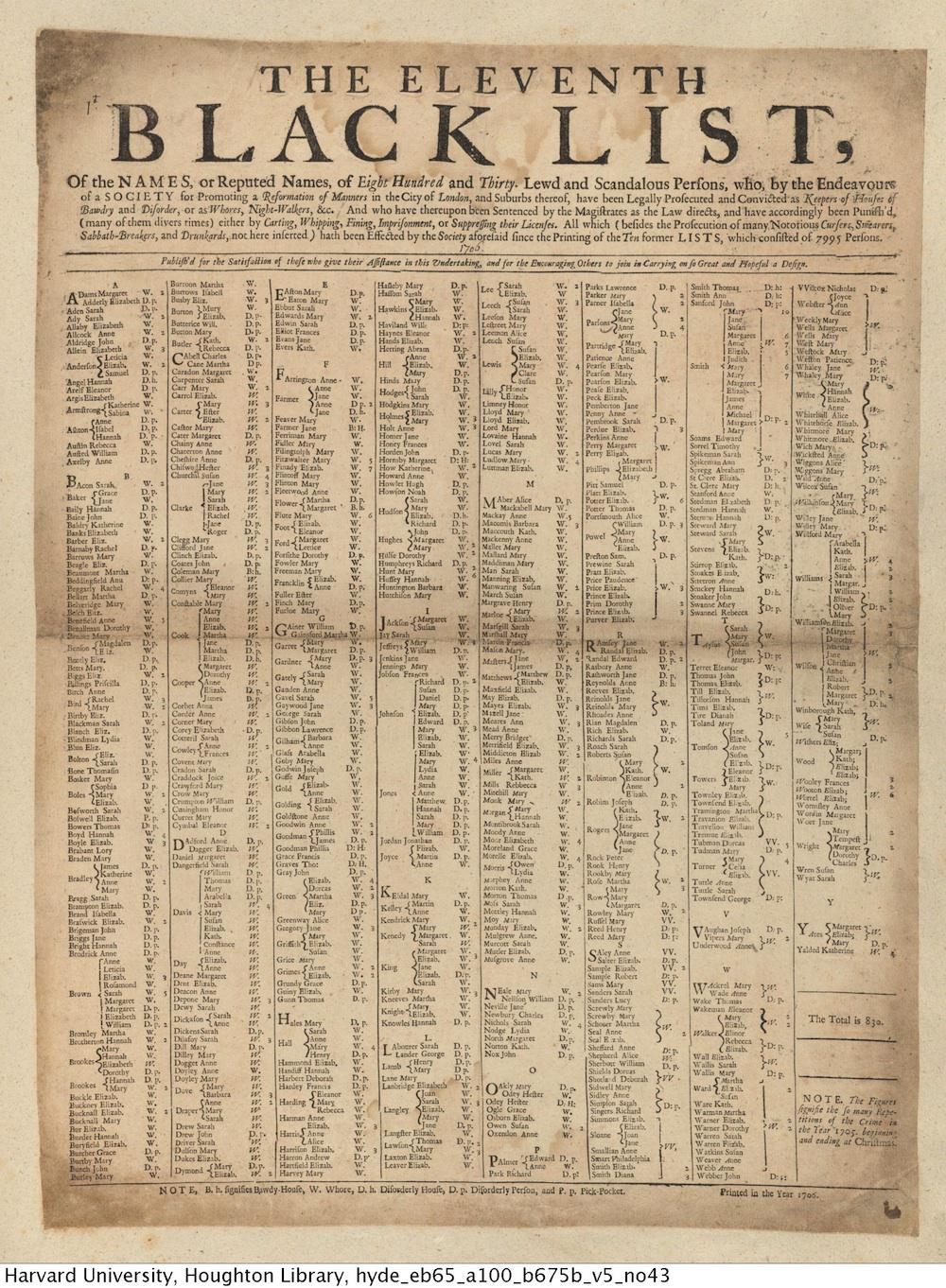The Vault is Slate’s history blog. Like us on Facebook, follow us on Twitter @slatevault, and find us on Tumblr. Find out more about what this space is all about here.
This “Black List,” printed in London in 1706, advertised a catalog of 830 “Lewd and Scandalous Persons” who had been prosecuted in the past year for crimes like prostitution, pick-pocketing, and keeping a “disorderly house.” The key at the bottom of the page attaches a crime to an initial; some offenders have numbers next to their initials, indicating repeat offenses.
Societies for Reformation of Manners, like the one that published this Black List, were organizations that took it upon themselves to prosecute people who engaged in vices like prostitution and drinking. In their history of these reformation societies, historians Tim Hitchcock, Sharon Howard, and Robert Shoemaker write that the groups, “led by prominent politicians and religious leaders,” were inspired by the recent return of the monarchy to Protestant rulers William and Mary.
“England, it was argued, had narrowly averted the catastrophe of a Catholic monarch,” they write, “and it was imperative to clean up public life before God imposed even more draconian punishments on the nation.”
Since there wasn’t police manpower available to do the fine-grained work of trapping such low-level offenders, reformers paid professional “informers,” who caught offenders red-handed and brought them to court, pressing charges. This informal policing was done on a large scale. The group that published this broadside boasted that it had overseen the prosecution of 7,995 total offenders, the names of which could be found on 10 previous annual lists.
Historian Joel Bernard writes that such attempts eventually faced significant opposition. Critics pointed out that the blacklists were loaded with poor people, while the vices of the socially advantaged escaped prosecution. (Daniel Defoe called the vice laws of the time “Cobweb Laws, in which the small Flies are catch’d, and the great ones break through.”)
Informers, Hitchcock, Howard, and Shoemaker write, began to face physical danger from those they sought to arrest. Eventually the courts raised standards of evidence, all of which largely put an end to the reformation societies’ crusades in the middle of the 18th century.
Click on the image to reach a zoomable version, or visit the Black List’s page on Harvard’s digital archives. I first saw this image on Harvard’s Houghton Library’s Tumblr.

Harvard University, Houghton Library.